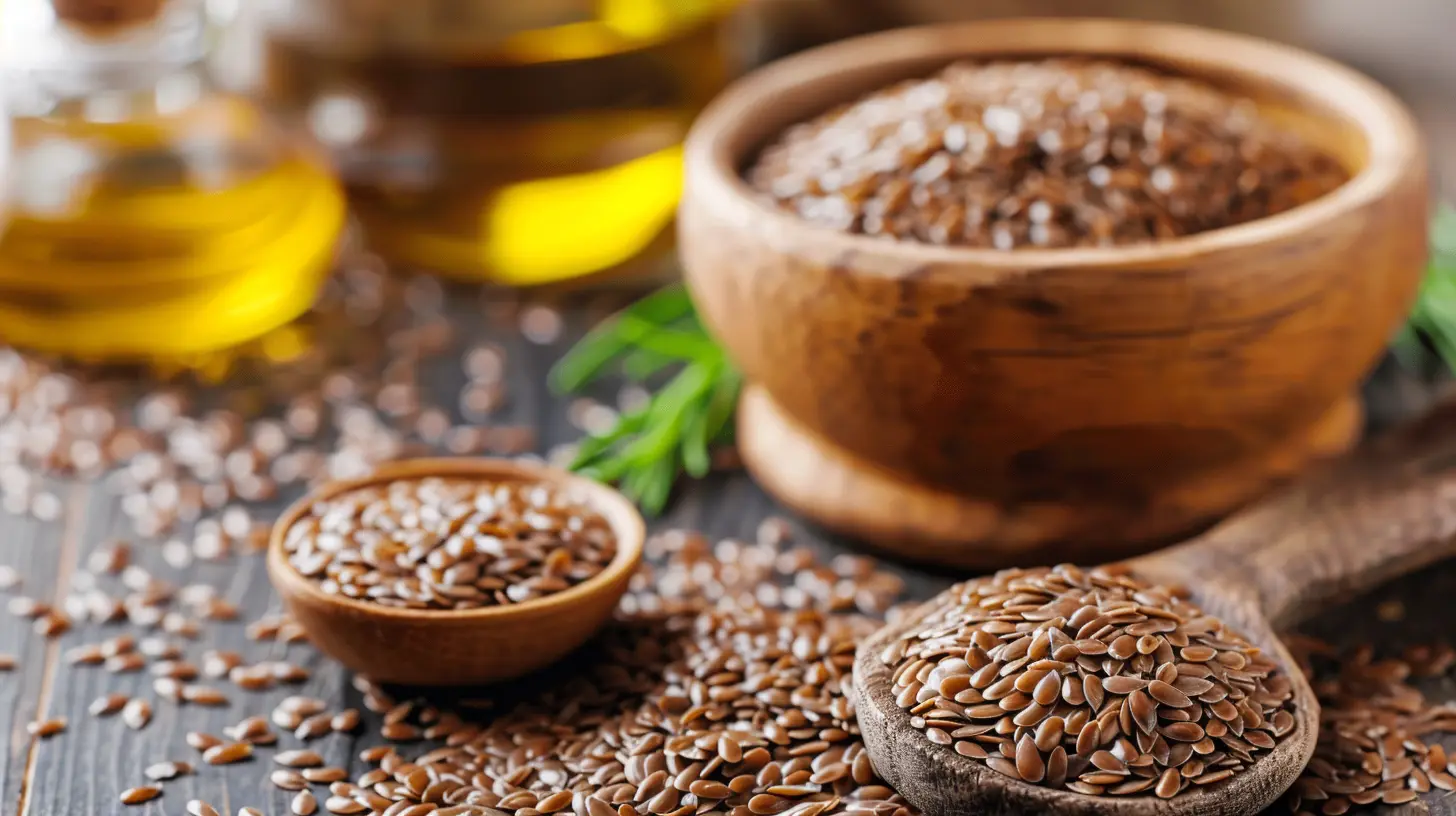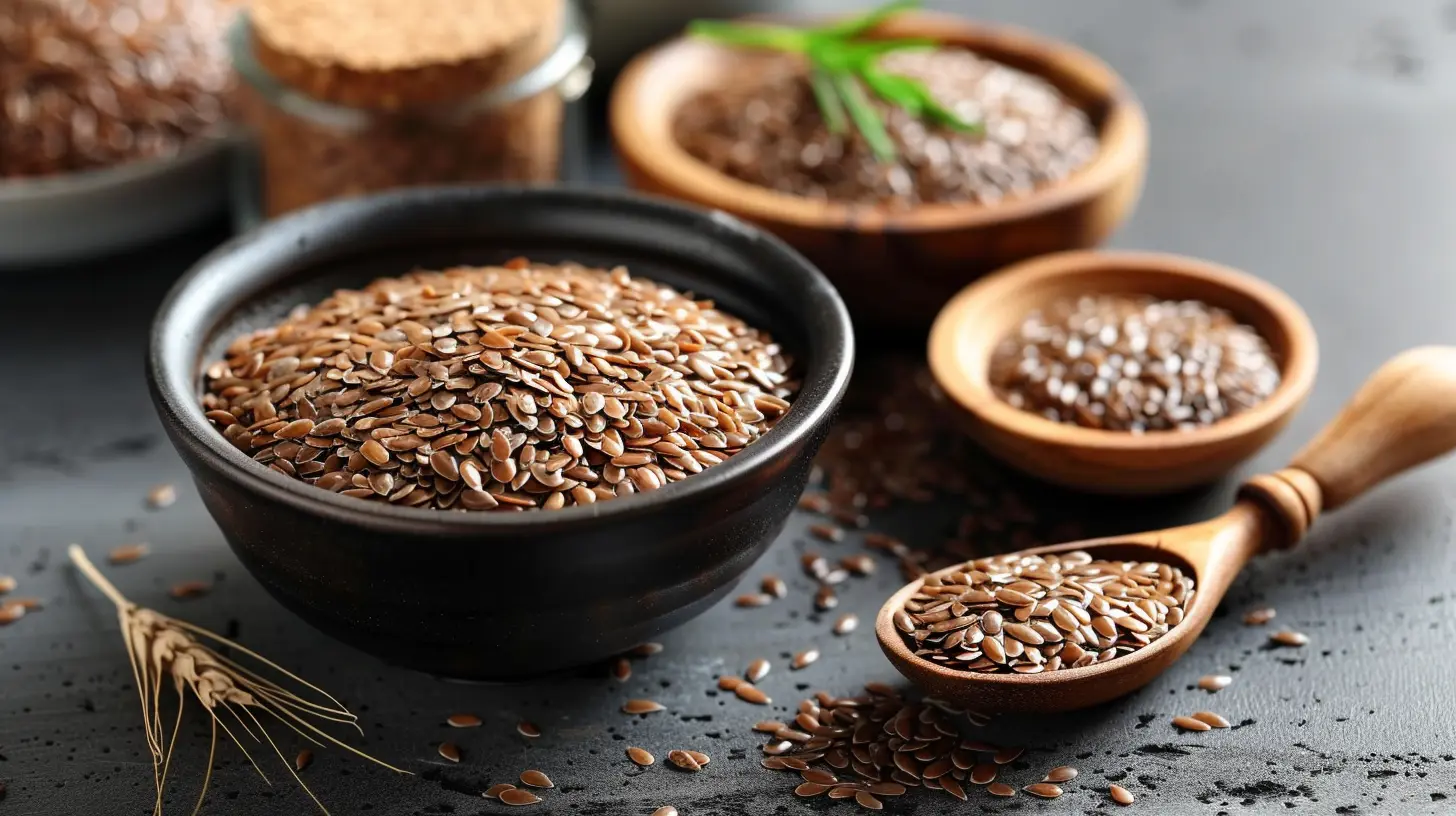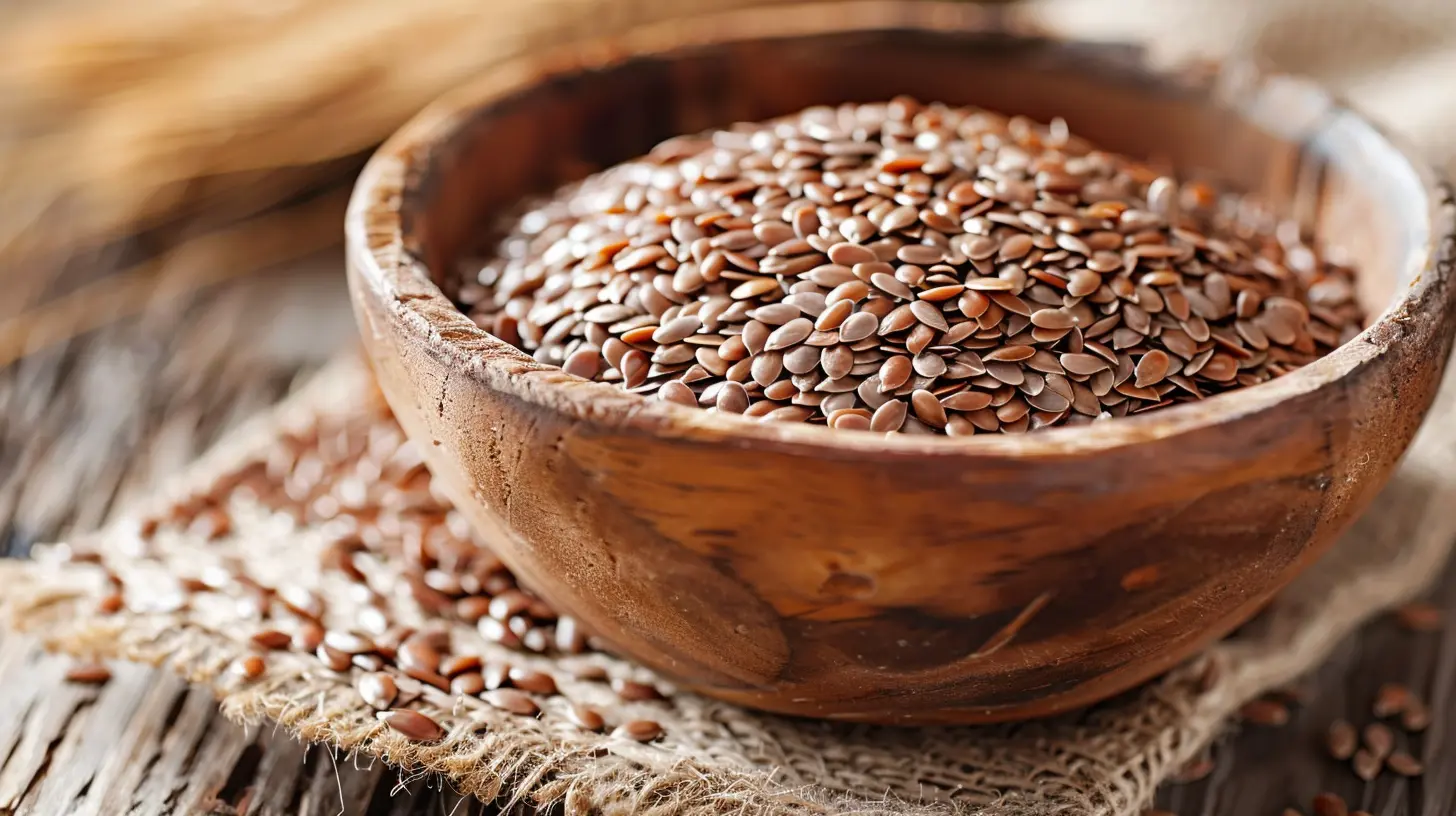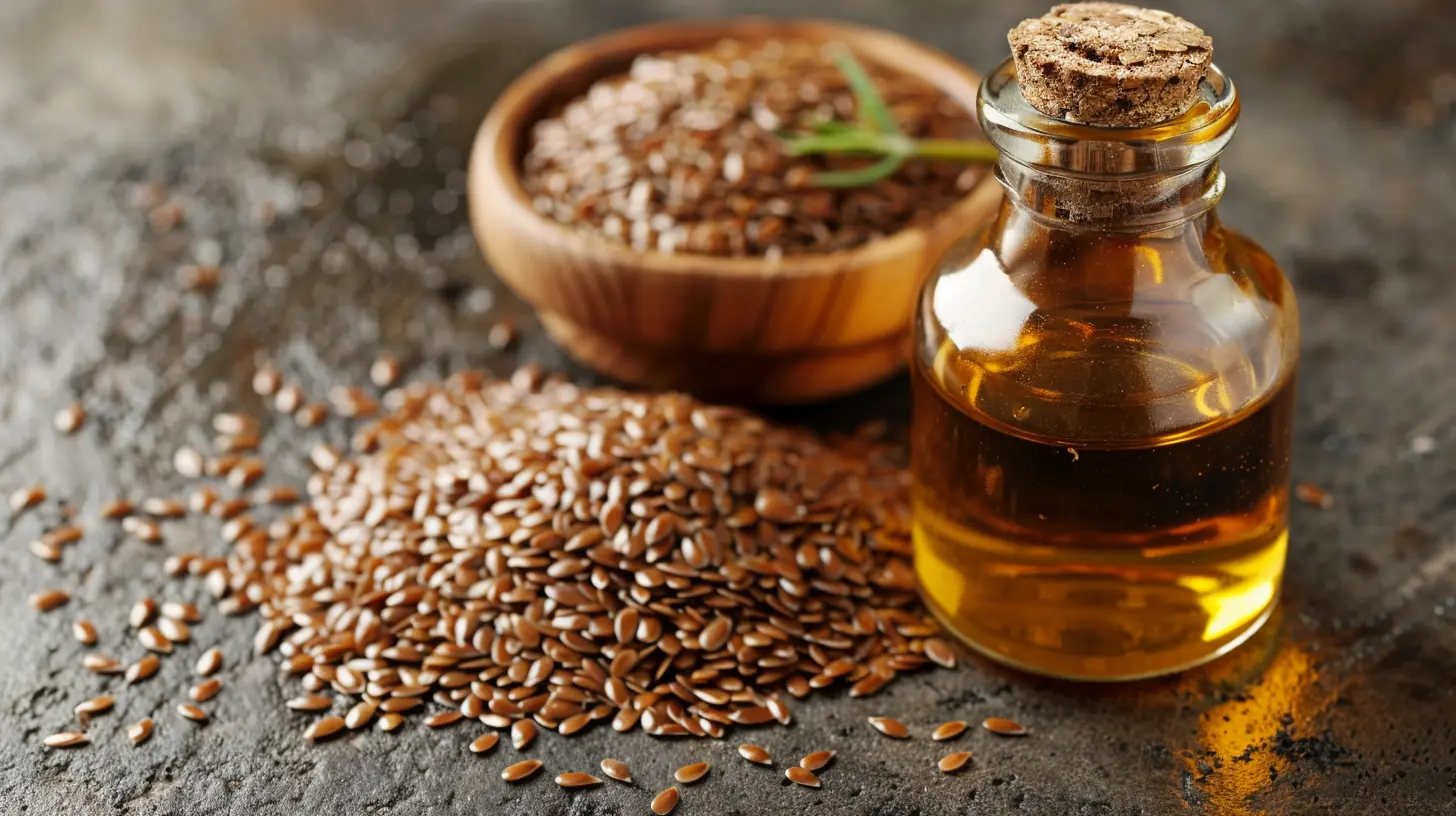The Importance of Including Flaxseed in Your Diet for Healthy Fats
14 November 2025
Let’s be real—when you hear "healthy fats," your mind probably jumps straight to avocados or olive oil. But let me introduce you to an underrated powerhouse that deserves a gold medal in the healthy fat game: flaxseed.
Tiny, but mighty, flaxseeds have been around for centuries. Yet, so many people still skip over them on grocery shelves like they’re just bird food. Big mistake! These little seeds are bursting with nutrients and could be the game-changer you've been looking for if you're striving for better health, especially heart and brain health.
In this article, we’ll unpack why flaxseed should be a staple in your daily diet and how those healthy fats inside it work wonders for your body.
What Exactly Is Flaxseed?
Before we get into why it's awesome, let’s break it down a bit. Flaxseed comes from the flax plant—a blue-flowered crop that’s been cultivated since the beginning of time (well, almost). It’s available in whole seed form, ground (a.k.a. flaxseed meal), and even as an oil.But here’s the kicker: it’s not just another seed. Flaxseed is one of the richest plant-based sources of omega-3 fatty acids, particularly alpha-linolenic acid (ALA), which plays a major role in fighting inflammation and supporting heart health.
Why Healthy Fats Are Such a Big Deal
Okay, quick reality check: Not all fats are created equal. While trans fats and too much saturated fat can wreak havoc on your health, healthy fats are like the superheroes of your diet.Healthy fats:
- Boost brain function
- Keep your heart ticking smoothly
- Reduce inflammation
- Support healthy skin
- Even help with weight management (yes, really)
And guess what? Flaxseed is loaded with these good-for-you fats. Specifically, it’s a plant-based source of those omega-3s most people only associate with fish. This makes it perfect if you're vegetarian, vegan, or just not a fan of seafood.
The Omega-3 Powerhouse: ALA in Flaxseed
So what’s the deal with ALA?ALA (alpha-linolenic acid) is an essential omega-3 fatty acid that your body can’t make on its own. That means the only way to get it is through food—and flaxseed is an A+ source.
Here’s why ALA matters:
- It helps lower bad cholesterol (LDL)
- It reduces the risk of heart disease
- It may keep your arteries flexible and clear
- It’s linked to better cognitive function
Imagine your bloodstream as a traffic-congested highway. Too much LDL cholesterol clogs up the road, leading to “accidents” like heart attacks and strokes. ALA swoops in like a traffic cop, clearing the lanes and keeping everything flowing.
More Than Just Fats: Other Nutrients in Flaxseed
Hold on—flaxseed isn’t a one-trick pony. Sure, healthy fats are the stars, but this seed has a supporting cast worthy of attention.It also contains:
- Fiber: Keeps your digestive system in check and helps you feel full longer (score!)
- Lignans: These are antioxidant-rich plant compounds that may reduce the risk of certain cancers
- Protein: Yep, flaxseed has a surprisingly solid protein punch for a plant-based food
- B Vitamins: Vital for energy and metabolism
When you sprinkle some flaxseed into your smoothie, oatmeal, or salad, you're not just throwing in healthy fats—you're basically giving your body a multivitamin in seed form.
Flaxseed: A Friend to Your Heart ❤️
Let’s talk about the big one—your heart.Heart disease is still the leading cause of death worldwide. But the good news? Your daily diet can play a huge role in prevention.
Here’s how flaxseed helps:
- Lowers blood pressure: Several studies show that regular flaxseed intake can help lower both systolic and diastolic blood pressure.
- Improves cholesterol: Flaxseed helps raise HDL (“good” cholesterol) and lower LDL (“bad” cholesterol).
- Reduces inflammation: Chronic inflammation is a silent killer. Thanks to its omega-3s, flaxseed helps calm down inflammation levels.
Think of it like adding a little bodyguard detail to your heart each time you eat flax.
Brain Gains: Flaxseed and Cognitive Health 🧠
Want to keep your brain sharp as a tack into your golden years? Then you'll want to keep reading.Your brain LOVES healthy fats. In fact, about 60% of your brain is made up of fat, and omega-3s—specifically ALA—are crucial for brain cell function and communication.
Adding flaxseed to your diet can:
- Improve mood and reduce depression symptoms
- Support focus and memory
- Potentially lower the risk of cognitive decline and Alzheimer’s
That little sprinkle of flax in your breakfast bowl could be the mental power-up you didn’t know you needed.
Skin Deep: How Flaxseed Helps You Glow
Who doesn't want glowing skin? Turns out, beauty really does start from the inside.The fatty acids in flaxseed help:
- Lock in moisture for supple, hydrated skin
- Reduce redness and irritation
- Fight acne through anti-inflammatory properties
Some people even use flaxseed oil topically, but eating it regularly does wonders from the inside out. You could think of it as a natural beauty supplement—no fancy creams needed.
Weight Management: Yes, Fat CAN Help You Slim Down
It might sound weird, but eating the right fats can actually help you lose fat.Here’s why flaxseed helps with weight control:
- High in fiber: It helps you feel full, so you're less likely to overeat or snack unnecessarily.
- Balances blood sugar: Stable blood sugar means fewer cravings and energy crashes.
- Supports metabolism: The good fats and protein in flaxseed keep your metabolism humming.
If weight loss or maintenance is on your radar, flaxseed is a friendly ally to have on your team.
Easy Ways to Add Flaxseed to Your Diet
Now you might be wondering, “Okay, I'm sold. But how the heck do I eat it?”No worries—flaxseed is super versatile. Here are some fun, easy ways to get it into your meals:
- Toss a tablespoon into your morning smoothie
- Sprinkle over oatmeal or cereal
- Mix into yogurt or cottage cheese
- Add to baking recipes like muffins or pancakes
- Stir into soups and stews as a thickener
- Use flaxseed oil as a salad dressing base (just don’t cook with it—it’s sensitive to heat)
Important tip: Always go for ground flaxseed (also called flaxseed meal) over whole seeds unless you're chewing like a champ. Whole seeds often pass right through your system undigested, taking all those precious nutrients with them.
How Much Flaxseed Should You Eat Daily?
A good starting point is about 1 to 2 tablespoons per day. That gives you a solid dose of healthy fats, fiber, and other nutrients without overwhelming your diet—or your digestive system.Pro tip: Start small. If you’re new to flax, gradually increase your intake to avoid any unexpected trips to the restroom. Fiber works best when your body has time to adjust.
Choosing the Right Type: Whole, Ground, or Oil?
Each form of flaxseed has its perks:- Whole seeds: Best for digestion if well-chewed, or for sprinkling on top of dishes for crunch.
- Ground flaxseed: Easiest to digest and absorb—this is the go-to for smoothies and baking.
- Flaxseed oil: Great for getting those healthy fats fast, especially for salad dressings or drizzling.
Store ground flaxseed and flax oil in the fridge to keep them fresh and prevent oxidation.
The Takeaway: Feed Your Body, Fuel Your Life
It’s easy to see why flaxseed deserves a spot on your nutritional all-star list. From heart health and glowing skin to brain function and weight management, this tiny seed packs a punch that your body will thank you for.So, the next time you’re shaking chia seeds into your smoothie or slicing up an avocado, remember to invite flaxseed to the party too.
Healthy living isn’t about trendy superfoods or complicated routines. Sometimes, it's as simple as adding a spoonful of something small but mighty.
Because when it comes to taking care of your body, every little bit—and every little seed—counts.
all images in this post were generated using AI tools
Category:
Healthy FatsAuthor:

Sophia Wyatt
Discussion
rate this article
1 comments
Madison Pope
This article effectively highlights the benefits of incorporating flaxseed into our diets. As someone who’s started adding it to my meals, I've noticed improvements in my digestion and overall well-being. It’s a simple yet impactful way to boost our intake of healthy fats.
November 16, 2025 at 5:45 AM

Sophia Wyatt
Thank you for sharing your experience! I'm glad to hear that incorporating flaxseed has positively impacted your digestion and well-being. It's indeed a powerful addition to a healthy diet!


